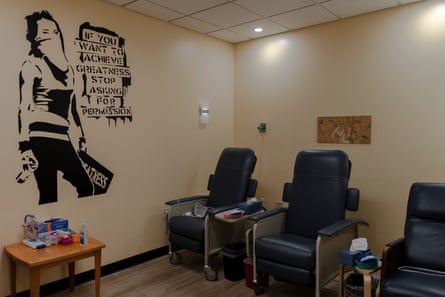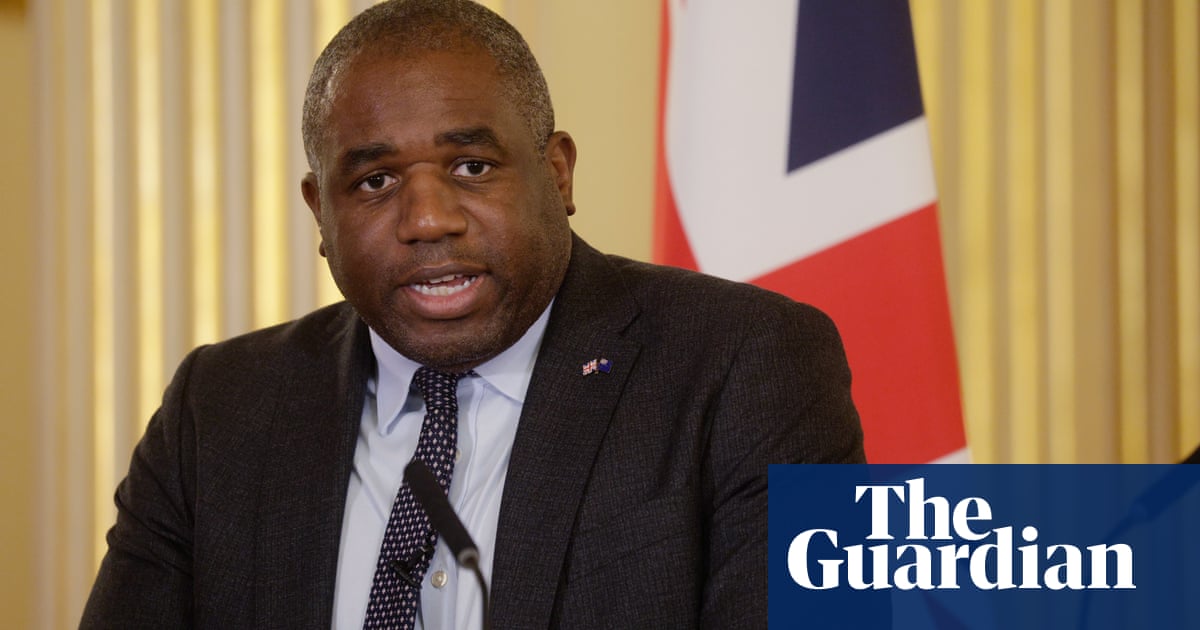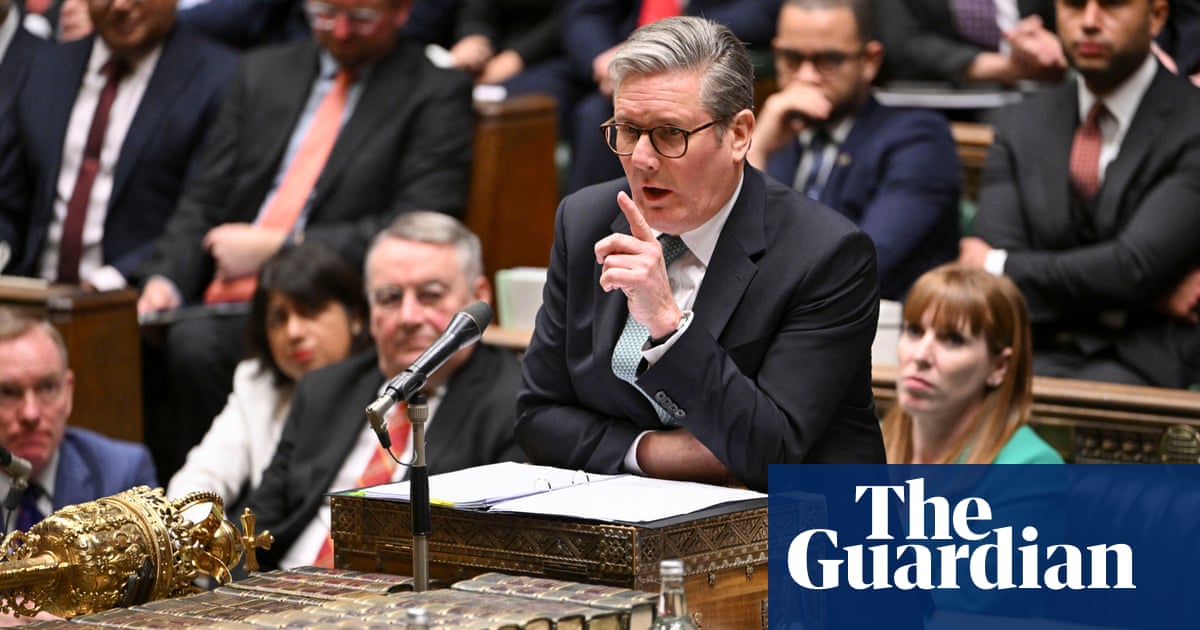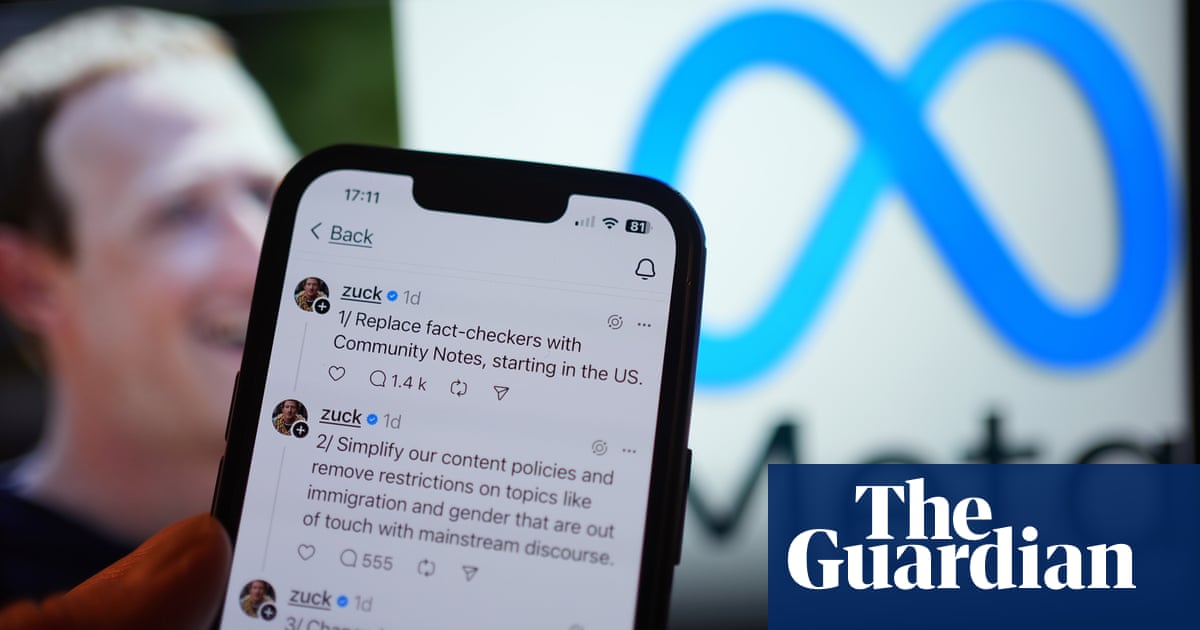Leslie Lemus’s top issue in the 2024 election is probably the economy. But she has a close second: “Them fucking with abortion.”
Really, for the 26-year-old Arizona native, the two issues are one and the same. On Monday, she got an abortion at Camelback Family Planning, one of the last abortion clinics in Arizona, in large part because Lemus feels like she can’t financially care for a child right now.
“I look at the world and it’s not very pretty. I’m not ready for that yet, to bring a child into the world right now, where the economy is not OK,” said Lemus, who said she lived paycheck to paycheck. Some months, she has to choose between making her car payments and paying off her credit card debt. “Everybody’s struggling left and right.”

Lemus is registered to vote in Maricopa county, which is home to 60% of the Arizona electorate and may determine whether Kamala Harris or Donald Trump wins the valuable swing state. Harris has made access to reproductive rights a key part of her policy platform – particularly as a contrast to Trump, who helped appoint three of the US supreme court justices who overturned Roe v Wade and who has toggled between branding himself as a champion of reproductive rights and as “the most pro-life president”.
Lemus is a passionate supporter of Harris, who she calls “my homegirl”.
Majorities of Americans have backed abortion access and Roe v Wade for decades, but it was rarely their top issue in the voting booth. Now that the US supreme court has overturned Roe, permitting more than a dozen states to ban almost all abortions and several more to ban it at six, 12, or – as in Arizona – 15 weeks, abortion may become the deciding issue of the 2024 election. It is now the most important issue for women under 45, like Lemus.
“If Harris wins the election, it will be because of abortion and women voting for her in large part because of that issue,” said Tresa Undem, a pollster who’s been surveying people about abortion for more than two decades.
On Monday, Camelback had about 40 patients to see; at least one had traveled in from Texas, which bans almost all abortions. Visitors to the lobby were greeted by a sign urging them to register to vote while they waited for their abortion. The sign advised: “The health of our democracy is in our hands.”
‘That gives me hope’
On Tuesday, Arizona will become one of 10 states where voters will decide whether to amend their state constitutions to add or expand abortion protections. (In one of those states, Nebraska, voters will vote on both a ballot measure that could expand abortion rights and on the nation’s sole anti-abortion measure.) Five of those states, including Arizona, have some kind of abortion ban on the books. If any of the measures supporting abortion rights pass, it would be the first time that a state has overturned a post-Roe v Wade ban.
Democrats have long hoped these measures would boost turnout among their base, but the rosy polling for the measures in steadfastly red states indicates that a significant swath of voters are essentially splitting their votes by supporting both abortion rights and Republicans, the party that helped engineer Roe’s downfall. Although the measure looks likely to pass in Arizona, for example, polling suggests that Trump will win the state.

Julio Morera helped collect signatures at the Arizona state fair in order to get the measure on the ballot. His group’s booth, he recalled, was set up next to a man who was hawking rightwing memorabilia adorned with eagles, guns and the slogan “Don’t Tread On Me”. When asked to sign the petition, the man demurred. “I got customers to think about,” he said.
But at the very end of the fair, Morera said, the man added his signature.
“That gives me hope that this is gonna pass,” Morera said. “There are quite a few people that may not be Democrats or left-leaning who would support this access to abortion.”
A vote for Trump, however, may ultimately cancel out a vote for a ballot measure. If Trump wins the presidency, he will be able to skirt Congress and use a 19th-century anti-vice law known as the Comstock Act to ban the mailing of all abortion-related materials – which would result in a de facto national abortion ban and render these measures’ successes moot.
Project 2025, an influential policy playbook for the next conservative administration, suggests using the Comstock Act to at least ban the mailing of abortion pills, which account for roughly two-thirds of US abortions. It also suggests rolling back privacy protections for abortion patients and reshaping the nation’s largest family planning program, which would curtail access to contraception, among a bevy of other anti-abortion policies.
Harris, meanwhile, has forcefully defended abortion rights. “Over these past two years, the impact of Trump abortion bans has been devastating,” she told a rally in Texas in October. “We see the horrific reality that women and families face every single day.”
For Lemus, abortion bans all come down to one thing: “Men being in control of women.”

The economy was not the only reason that Lemus sought an abortion on Monday. She is also worried about the mental toll of having a child. At 18, Lemus gave birth to a son who was born prematurely and died just a month after birth.
“I was there with all the medical stuff, seeing my child in the incubator until he passed away,” she said quietly. Eight years later, Lemus is not ready to have another one.
“We fought so hard to have choices,” she said. “Why do they feel like we can’t have a choice?”
Read more of the Guardian’s 2024 US election coverage
-
How the electoral college works
-
Lessons from the key swing states
-
What’s at stake in this election

.png) 2 months ago
17
2 months ago
17













































